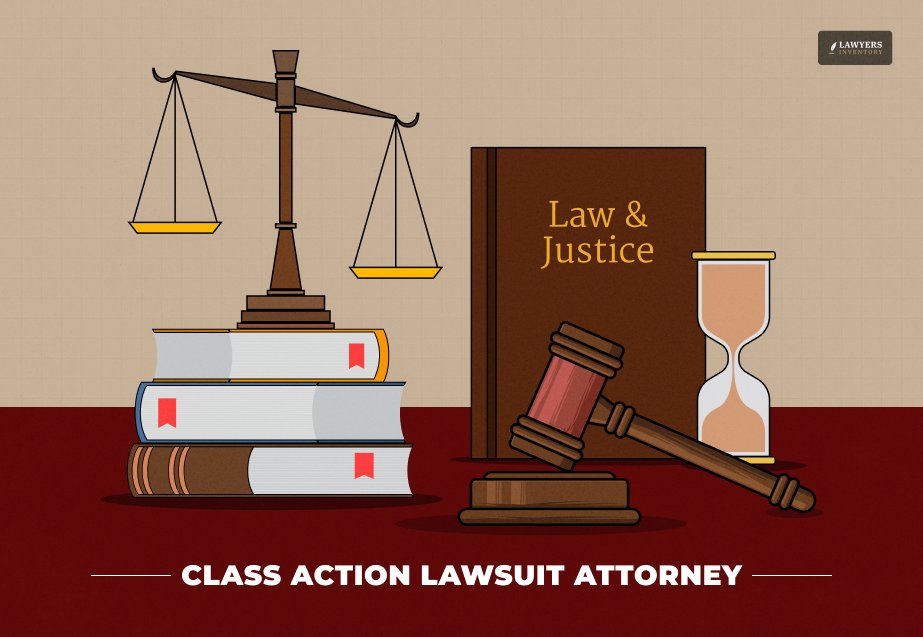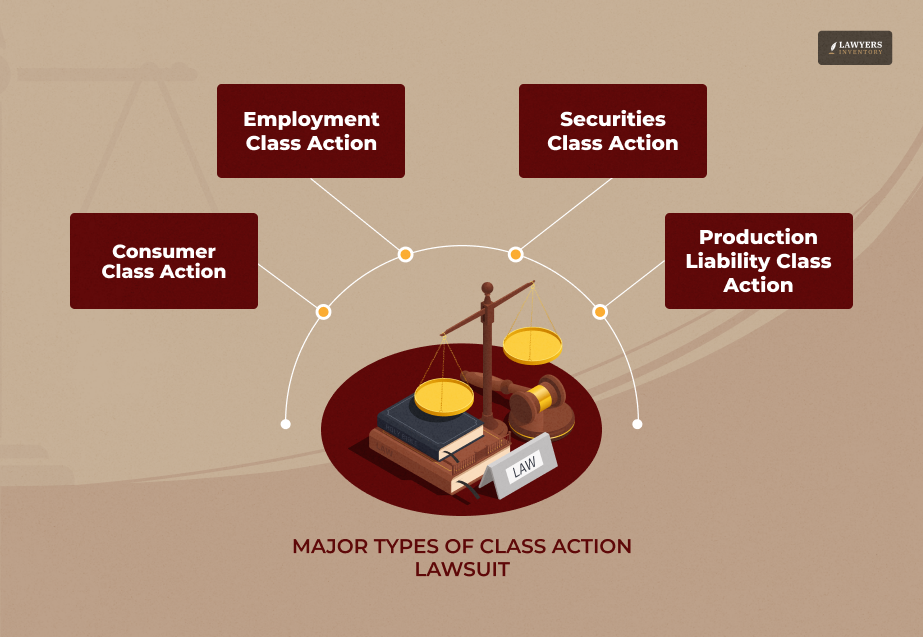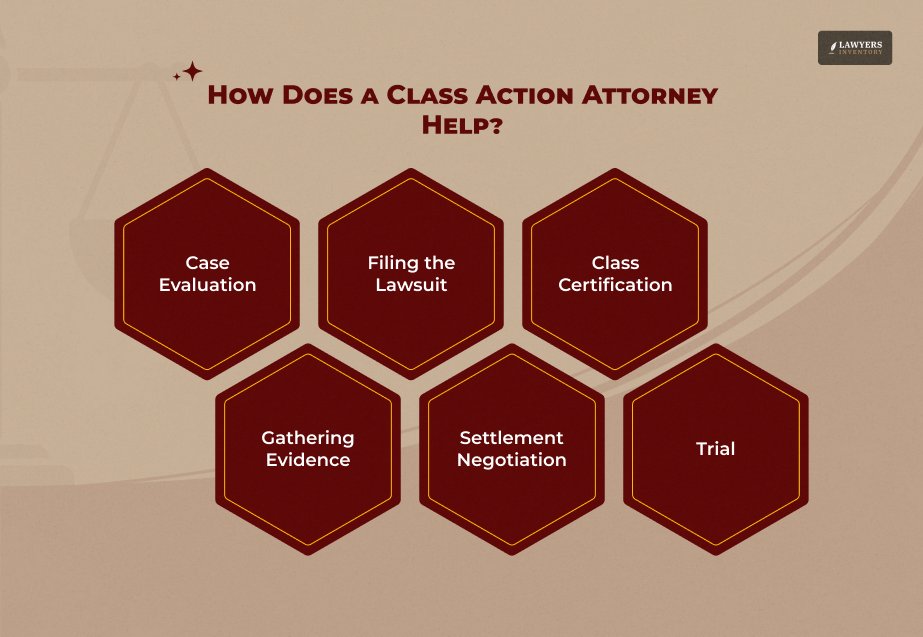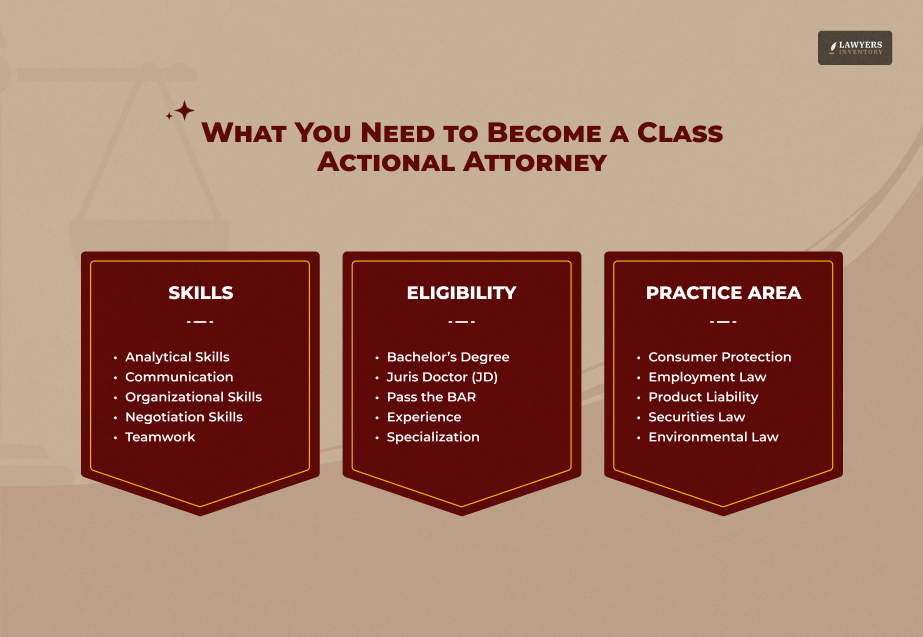
When you hear the word “class action lawsuit,” you may be wondering what it is and whether you actually need a class action lawsuit attorney. Let me tell you something!
When several people who have been harmed in similar ways band together to sue the same business or person, it’s known as a class action lawsuit.
A defective product, false advertising, or even negative side effects from a medication (like in the Suboxone lawsuit) or service could be the cause.
However, the true question is: is a class action lawsuit lawyer necessary? Yes, in all honesty, and here’s why.
It’s not easy to handle these circumstances. It might be daunting to deal with a lot of paperwork, tight deadlines, and legalese.
A good class action lawyer can help you sort through the complexities, ensure that your claim is handled correctly, and fight for the money you are due.
Understanding Class Action Lawsuits
Let’s keep it simple: a class action lawsuit is when a group of people who’ve faced the same problem team up to take legal action against a company or individual.
Do you need a hypothetical scenario to understand it better? Okay, picture this—you buy a product that turns out to be defective, and it harms not just you but thousands of others. Therefore, instead of each person filing their lawsuit, everyone joins together in one big case.
It’s easier, more efficient, and often the only way to hold big companies accountable without spending a fortune on legal fees.
The best part? It allows people with smaller claims that might not seem “worth it” to band together and demand justice. It’s about strength in numbers.
Types of Class Action Lawsuits

Class action lawsuits cover a lot of ground. However, here are the most common types:
- Consumer Class Actions: Ever bought a product that didn’t work or did more harm than good? Think of defective gadgets, unsafe cars, or misleading ads (for instance, in 72 Sold Lawsuit). Consumer class actions aim to fix these wrongs.
- Employment Class Actions: This is for workplace issues like unpaid wages, workplace discrimination, or unsafe working conditions. When a company violates employee rights, workers can stand up together.
- Securities Class Actions: If a company misleads investors with false financial information, shareholders can file a class action to recover their losses.
- Product Liability Class Actions: Harmful medications, faulty medical devices, or unsafe tools fall into this category. If a product causes injuries or illnesses, people affected can unite and take action.
How Does a Class Action Lawsuit Work?
In case you were wondering how to start a class action lawsuit or how it works out, let me tell you! Here’s how it all plays out:
- Filing the Case: One or more individuals (called lead plaintiffs) start the lawsuit on behalf of the group.
- Class Certification: The court decides if the case qualifies as a class action.
- Notifying Everyone: Potential plaintiffs get notified and can choose to join the lawsuit.
- Settlement or Trial: Most cases settle out of court, but some go to trial. The settlement or award is divided among everyone involved if the group wins.
At its core, a class action lawsuit levels the playing field. It allows regular people like you and me to stand up to powerful companies and fight for what’s right—together.
Who are Class Action Lawsuit Attorneys?

When a group of individuals, including you, have been harmed by the same business or person, you want to hire class action lawsuit lawyers.
Think of them as legal professionals who take on large cases where a company activity, service, or product has caused injury to a large number of people.
They are there to represent the group and fight for just compensation, regardless of the issue—a defective product, misleading advertising, or unpaid wages.
Furthermore, class action lawyers are adept at managing cases involving dozens, hundreds, or even thousands of people, something that ordinary lawyers are not.
It is their responsibility to guarantee that each member of the group has an equal opportunity at justice without having to deal with the exorbitant expenses or inconvenience of pursuing separate lawsuits.
What Does a Class Action Lawsuit Attorney Do?
So, what exactly does a class action attorney do? It’s more than just standing up in court.
For instance, here’s how they help:
- They Evaluate the Case: The attorney will determine if the situation qualifies as a class action lawsuit. Additionally, they check if many people have been affected by the same problem.
- They File the Lawsuit: Once they see a solid case, they file it on behalf of the entire group and name a “lead plaintiff”—the person who represents everyone else.
- They Get Class Certification: The attorney convinces the court that the case should proceed as a class action. Without this step, the case won’t go anywhere.
- They Gather Evidence: This could be from company records to expert opinions and customer complaints. Furthermore, they build the case from the ground up.
- They Negotiate Settlements: Most class action lawsuits end in a settlement. The attorney makes sure the group gets a deal that’s fair and worth their time.
- They Go to Trial: If there’s no settlement, the attorney represents the group in court, arguing the case and fighting for compensation.
When Do You Need a Class Action Attorney?
Wondering if you need a class action attorney? Here are some situations where it makes sense:
- Defective Products: Did you buy a product that didn’t work or even caused harm? If others faced the same issue, it might be time to act.
- Unfair Business Practices: Ever been misled by a company’s advertising or charged hidden fees? You’re not alone; a class action could help hold them accountable.
- Workplace Issues: If an employer owes you and other coworkers unpaid wages, violation of red labor laws, or employee discrimination, a class action can be a powerful tool.
- Dangerous Medications or Devices: If a drug or medical device caused unexpected harm, you and others affected may have a case.
The bottom line? If you and others are dealing with the same problem caused by a company, a class action attorney can help you take action together.
Cost of Hiring a Class Action Lawsuit Attorney
Let’s talk about the cost because that’s often the first worry. Most people often worry and ask: “Can I afford a class action lawsuit attorney?”
Here’s the good news: hiring a class action attorney usually doesn’t cost you anything upfront. Most of them work on a contingency fee basis, which means they only get paid if the case is successful.
So, how do they get paid? Once the case is resolved, they take a percentage of the settlement or compensation—typically between 25% to 40%. If the case doesn’t win, you don’t owe them anything.
Plus, the other case costs—like court fees and hiring experts—are usually covered and deducted from the settlement. That way, you don’t have to worry about paying out of pocket.
In short, working with a class action attorney is affordable and risk-free. They allow regular people like you to stand up to big companies without breaking the bank.
How to Choose the Right Class Action Lawsuit Attorney?
Finding the right class action attorney doesn’t have to feel overwhelming. So, where do you start?
First, look for experience. Class action lawsuits aren’t like regular cases—they’re complex and involve many moving parts. You want an attorney who has handled similar cases and knows how to get results.
A quick look at their track record can tell you a lot: have they won cases or negotiated strong settlements?
Next, think about their resources and team. A class action lawsuit isn’t a one-person job. It takes research, expert testimony, and sometimes a team of professionals to build a strong case. A well-established attorney or firm will have everything they need to back you up.
Also, pay attention to how they communicate. You want someone who keeps things simple, answers your questions, and doesn’t confuse you. A good attorney should explain the process clearly and keep you updated every step of the way.
Lastly, check how they charge. Most class action attorneys work on a contingency basis, which means you don’t pay anything upfront—they only get paid if you win.
A Class Action Lawsuit Attorney is a Must in Some Cases— Here’s Why!
You may ask yourself, “Do I really need an attorney?” if a firm has wronged you through a harmful medication, a defective product, or unfair business practices. The answer is frequently yes in class action lawsuits, and here’s why.
Class action lawsuits are difficult. They often entail facing out against big businesses with substantial financial resources and capable legal teams, as well as numerous plaintiffs and copious amounts of evidence.
A skilled class action lawyer is able to manage these difficulties. They’ll plan the case, fairly represent the organization, and bargain for the best result.
More significantly, having a lawyer strengthens your case. One lawsuit alone, for example, can feel like a lost struggle.
A class action lawyer, on the other hand, becomes your voice when you band together. They also know how to defend your rights, fight for justice, and assist you in receiving recompense that you couldn’t acquire on your own.
And you know what? The majority of class action lawyers take cases on a contingency fee basis, which means you only pay if you prevail.
Therefore, having an experienced class action lawyer on your side is not just beneficial but necessary if you’re dealing with a scenario that has impacted a large number of people.
Becoming a Class Action Lawsuit Attorney: Things You MUST Know About!

If you’ve ever thought about becoming a class action lawsuit attorney, you’re considering a challenging and rewarding career.
Class action attorneys play a huge role in standing up for people big companies have wronged, whether because of a faulty product or unfair business practices.
But what does it take to become one?
Skills You Need to Become a Class Action Lawsuit Attorney
You’ll need more than just a law degree to thrive as a class action attorney. Here are some must-have skills:
- Strong Analytical Skills: Class action cases can get complicated, with tons of evidence and legal issues. You’ll need to be able to look at all the details and figure out what’s going on.
- Clear Communication: You’ll be talking to many people—clients, judges, and sometimes the media. Furthermore, being able to explain legal things in simple, understandable ways is essential.
- Organizational Skills: Class actions involve many moving parts, from documents to deadlines. Staying organized will keep everything on track.
- Negotiation Skills: Most class actions settle before going to court. Knowing how to negotiate a fair deal for everyone involved is key to getting the best outcome.
- Teamwork: You won’t be doing this alone. Class actions require collaboration with other lawyers, paralegals, and experts to build the best case possible.
What are the Eligibility Criteria?
So, how do you get there? Here’s the path:
- Earn a Bachelor’s Degree: You don’t need a specific major, but something like political science, business, or economics can help you develop important skills.
- Attend Law School: You’ll need a Juris Doctor (JD) degree from an accredited law school to practice law. You’ll also need to pass the LSAT to get in.
- Pass the Bar Exam: After law school, you’ll need to pass the bar exam in your state to get licensed. This is a big step for all lawyers.
- Gain Experience: Class action law is complex, so getting experience in litigation or working with law firms that handle large cases is important. Internships are a great way to start.
- Specialize: Once licensed, you’ll likely want to specialize in consumer protection or employment law. This gives you the expertise to handle class action cases effectively.
What Should Be the Practice Area?
Class action cases can cover a lot of ground. But honestly, choosing the right practice area depends on your interests and the impact you want.
However, here are some practice areas you might choose to specialize in:
- Consumer Protection: Firstly, this could be your focus if you’re passionate about standing up to companies that sell faulty products or use misleading advertising.
- Employment Law: If you’re interested in helping workers fight against unfair wages, discrimination, or workplace violations, this area might be a perfect fit.
- Product Liability: This area focuses on cases where products cause harm—think defective medical devices or unsafe vehicles. If this interests you, you’ll represent people who these products have hurt.
- Securities Law: For those who enjoy finance, this area involves representing investors misled or defrauded by companies.
- Environmental Law: If you’re passionate about protecting the planet, this area focuses on pollution or environmental damage cases.
Read Also:
- Why $100 Million Settlement Fund from Verizon Wireless Class Action Lawsuit is All Over the News!
- Mr. Cooper Class Action Lawsuit: What We Should Know About Unlawful Home Loan Services
- Walmart Class Action Lawsuit: The $45 Million Lawsuit That Has Shaken the Industry











0 Reply
No comments yet.